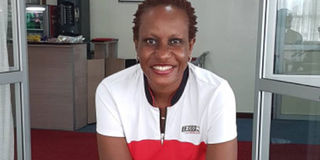Why you need to be your child’s friend

I have heard her say it a number of times. She has emphatically told all and sundry that she hates her mother.
I had not thought about that statement for a while, until today when one of the women at the local gym started to describe her mother. Listening to her, together with a group of women, including a mother of adult children, was alarming.
The mother of the adult children was so upset that she lay her hands on her head, why? Because she felt the conversation was a close replica of her life story. She had begun to notice that often times, her children no longer liked to visit or to spend quality time with her.
It appears there is a very delicate balance between being a parent and being a friend to one’s children. How does one strike this balance? Is it even possible? Is it a must-do?
The woman I know who says she hates her mother has made the same statement for many years. She says her mother keeps talking ill against her weight and size. When you think about it deeply, no one wants to be around someone who often points out their mistakes and challenges. No one enjoys negativity and criticism. Yet as parents, we must tow the tough line of being the cheerleader as well as be a source of guidance for our children. The parent must have ways through which they express their disappointment, play the role of helping in the face of challenges and still remain their child’s anchor, support and place of safety.
The mother of the adult children in our conversation, said often times, she discovered her children barely wanted to be around her. She confessed that indeed she would be pointing out negative behaviour, a thing she does out of love. I sat back and reflected. I pondered upon the seriousness of this matter, especially knowing that I am a typical African and I uphold a blend of authoritative and democratic parenting style.
I am relatively strict, although I am considerate of the fact that to be a child is but a passing stage. I am also learning not to concentrate on smaller issues but still allow room for children to find me approachable and understanding. Listening to the sad tales taught me to be mindful that sometimes, if a child only hears criticism over time, they drift away to a point of simply acknowledging their parents but with little regard.


